The 30s, 40s, and 50s are often described as the best and busiest years of a woman’s life.
It’s during this time that women must learn to strike a balance between pouring themselves out completely to careers, families, or others’ expectations, and to accept and care for themselves more deeply.
This is often easier said than done, but prioritizing your health is one of the most essential forms of self-care you can practice, especially as you get older.
Optimizing movement, hydration, friendships, and a sense of community, as well as sleep and nutrition, are all non-negotiables as we navigate this busy season, and can set us up for success in future decades.
Today, we’re discussing nutrition, specifically the essential supplements and vitamins for women in their 30s, 40s, and 50s to support energy, focus, hormonal health, graceful aging, and more.
Nutrition Basics for Women in Your 30s, 40s, and 50s
A lot changes from decade to decade in a woman’s life, but the same basic nutritional principles apply:
- Focus on a whole-foods diet with plenty of colorful fruits and vegetables: This supplies fiber, vitamins, minerals, water, and protective plant compounds, such as antioxidants.
- Drink plenty of water: General recommendations are to consume at least eight 8-oz glasses of water daily. Staying hydrated promotes healthy digestion, nutrient absorption, skin health, cellular health, focus, and much more.
- Avoid processed and ultra-processed foods: These foods are devoid of nutrients and full of unhealthy ingredients linked to various ill-health effects, including weight gain, cognitive issues, obesity, metabolic syndrome, and even cancer if consumed often.
- Prioritize clean protein sources: Protein provides the building blocks for tissue, muscle, and cellular repair. It’s also essential for blood sugar balance, muscle building, satiety, and more.
- Get plenty of fiber: According to the American Society for Nutrition, only 9% of women get enough daily fiber. Fiber helps promote healthy digestion and elimination, supports gut health, aids in weight management, and contributes to heart health. The best sources come from plants and whole grains.
- Enjoy calcium-rich foods: These are the safest sources of bone- and teeth-building calcium, including leafy greens, broccoli, and dairy or dairy alternatives.
- Limit your intake of refined sugar: Like processed foods, excess sugar in the diet can lead to weight gain, obesity, premature aging, immune issues, and more.
- Make room for healthy fats: Moderate amounts of healthy fats, such as olive oil, avocados, nuts, and seeds, as well as omega-3s, are essential for various aspects of health, including skin health, gut health, satiety, mood, hormonal balance, and a healthy inflammatory response.
- Try to eat some cultured foods daily. Cultured foods, such as yogurt, kefir, sauerkraut, and kombucha, contain natural probiotics that promote a healthy gut microbiome.
- Focus on variety: Eating a variety of foods is the best way to ensure you get enough nutrients in your diet.
- Pay attention to portions, but don’t obsess: Women’s caloric needs can vary based on their size, how much they exercise, health or weight goals, and if they’re in a season of pregnancy or lactation. Although you don’t want to obsess over portions, you don’t want to eat too much or too little on the regular.
General caloric recommendations for women in their 30s to 50s may range from 1,500 to 2,000 calories a day, or more, depending on the factors mentioned above.
The good news is that if you’re focusing on the other nutrition basics, you should feel full and satisfied with healthy portions.
This is by no means an exhaustive list of everything you could do to optimize nutrition in your third, fourth, and fifth decades, but it does cover the basics plus a little extra.
Now that you’ve got this down, let’s move on to seven supplements that can help support your nutritional needs.
7 Essential Supplements & Vitamins for Women in Their 30s, 40s, & 50s
A healthy, whole foods diet is always your best source of vitamins, minerals, and nutrients.
However, nobody’s perfect (especially during busy seasons), and that’s where supplements can help.
The following seven supplements can help promote healthy energy, mood, hormones, immunity, metabolism, focus, and bone health, providing a solid foundation for a graceful and healthy aging process.
1. B Vitamins
B vitamins are a type of essential water-soluble vitamin family essential for energy, nutrient assimilation, cognitive health, gut health, hormonal health, stress response, adrenal health, hair, skin, and nail health, and more.
There are 8 B-vitamins, known as B-complex, including:
Vitamin B1 (Thiamine): Promotes energy metabolism, cell health, healthy metabolic function, and nervous system function.
Vitamin B2 (Riboflavin): Essential for maintaining normal homocysteine levels, energy, amino acid conversion, adrenal function, and cellular health.
Vitamin B3 (Niacin): Vital for central nervous system health, energy production, cognitive protection, cardiovascular health, and mood via its effects on serotonin production. Many people also find niacin has a relaxing effect.
Vitamin B5 (Pantothenic Acid): Well-known for its benefits for hair, skin, and nails, this vitamin also helps mediate the stress response, metabolism, the gut-brain axis, gut health, and cholesterol levels.
Vitamin B6 (Pyridoxine): Critical for energy, protein metabolism, homocysteine balance, cognitive development and function, neurotransmitter production, glucose metabolism, the formation of hemoglobin, immune function, mood in women, and heart health. Many women also swear by Vitamin B6 for promoting easier periods.
Vitamin B7 (Biotin): Best known for its effects on hair, skin, and nails, this vitamin is also essential for energy production, cellular health, and neurological function.
Vitamin B9 (Folate/Folic Acid): Especially critical for expecting mothers or women who wish to become pregnant, folate is also essential for energy, cellular function, DNA repair, cardiovascular health, amino acid conversion, blood health, and the production of neurotransmitters such as serotonin and dopamine.
For some women, especially those with genetic variations, choosing a coenzymated or methylated form of folate, such as methylfolate, is essential for optimal absorption.
Vitamin B12 (Cobalamin): Vitamin B12 deficiency and insufficiency are not uncommon in women, particularly as they age. It is essential for nervous system health, energy, cognitive function and memory, mood, HPA axis function, and cardiovascular health.
For some women, especially those with genetic variations like MTHFR, coenzymated or methylated forms of B12, such as methylcobalamin, are better absorbed than other forms.
Related reading: Are You Deficient in Vitamin B12? 23 Benefits of B12 for Memory, Mood, Beauty, Energy, & More
B vitamins can be found in various supplements, including multivitamins, B-complex formulas, and single vitamin formulas, as well as hair, skin, and nail products.
The best source for you depends on your nutritional needs, genetics, and health goals, so talk with your healthcare practitioner for recommendations.
That said, B vitamins are water soluble, so it’s hard to take too much.
Also, keep in mind that birth control pills and other medications, such as proton pump inhibitors, are known to deplete essential B vitamins, such as B12.
A good general source is either a multivitamin or a B-complex, like Country Life Coenzyme B-Complex, Core Daily-1® For Women Multivitamin, or Core Daily-1® For Women 50+ Multivitamin.
Related reading: The Role Of B Vitamins In Stress Management And Support
2. Kelp
This may seem like an unusual recommendation, but kelp is rich in natural iodine, a mineral essential for thyroid support, immune function, cognitive health, and healthy aging.
Thyroid conditions are on the rise, especially in women reaching middle age, and iodine is a critical protective nutrient.
The thyroid is involved in several aspects of women’s health, including hormonal balance, reproductive health, fertility, metabolism, heart health, weight gain, energy, hair health, a healthy pregnancy, proper fetal development, bone health, mental/emotional health, and temperature regulation.
Obtaining iodine from a food source, such as kelp, is safer than taking a synthetic or high-dose iodine supplement.
Country Life offers a pure Arctic Kelp supplement as a natural and affordable source of iodine.
Related reading: Sea Moss Alternatives: How Does Arctic Kelp Compare?
3. Vitamin D
Vitamin D is one of the most essential vitamins for women over 30, as it affects bone density, hormonal health, immunity, skin health, and fertility.
Vitamin D is unique for several reasons. For example:
- It’s a hormone and a vitamin
- It’s not found in many foods
- The best source of vitamin D is the sun
- Vitamin D deficiency or insufficiency is common
- Deficiency has been linked to various chronic conditions
- New research has shown vitamin D works synergistically with omega-3s to prevent various aging processes
- Researchers have called vitamin D a “shield against aging” due to its ability to shape cellular processes and support immune response toward immune protection against infections and age-related diseases
Fortunately, most doctors screen for vitamin D deficiency at check-ups, but not all, so be sure to ask to have your serum levels checked.
If your levels are not optimal, your doctor will likely recommend extra safe sun exposure as well as supplementation with vitamin D3, the most bioavailable form.
Shop Country Life’s Vitamin D supplements.
4. Omega-3s
Omega-3s, such as fish oil, are among the most highly recommended supplements for men and women, particularly as they approach their 40s and 50s.
Omega-3s offer numerous protective benefits, particularly for cardiovascular health, promoting a healthy inflammatory response, as well as for skin health, eye health, joint function, cognitive function, hormonal balance, and cellular health.
For women in their 30s and 40s who are pregnant, nursing, or planning to become pregnant, omega-3 fatty acids provide a rich source of DHA, which is essential for healthy brain development in infants.
They also help offset imbalanced intake of pro-inflammatory omega-6 fatty acids, which are overabundant in the standard Western diet.
To give some perspective, a 1:1 to 4:1 ratio of omega-6 to omega-3 is considered a healthy ratio that supports a normal inflammatory response.
Yet, the average Western diet clocks in at about 15:1!
Country Life® offers three clean, contaminant-tested Omega-3 supplements (sourced from the lowest mercury fish, salmon, mackerel, anchovies, sardines, and herring (SMASH), including:
Learn more in: The Best Omega-3 Fatty Acid Supplement & Food Sources
5. A Women’s Multivitamin
Multivitamins are a staple in most health-conscious women’s supplement cabinets.
However, if you’re taking the same multi as your husband or opposite-sex partner, you may be missing out on some female-specific nutrients.
For example, a high-quality women’s multivitamin may contain:
- Iron, an essential mineral, is often lacking in menstruating women and people
- Higher amounts of B vitamins or coenzymated/methylated B vitamins, including folate and vitamin B12,
- Female supportive herbs like red raspberry, nettles, or cranberry
- Female-specific probiotics to support urinary and vaginal microbiome health
- Iodine
- Digestive enzymes
- Amino acids
- Superfruits, vegetables, algae, and other superfoods to support healthy aging and cellular health
Although not intended to replace a healthy diet, a multivitamin can go a long way in helping you fill nutrient gaps and prevent common deficiencies or insufficiencies in your 30s, 40s, and 50s.
Prenatal multivitamins are also essential for a healthy pregnancy and infant, and some women continue taking them during lactation.
Country Life offers several women’s multivitamins and a whole foods prenatal to choose from, including:
- RealFood Organics® Multivitamin For Women
- Core Daily-1® for Women Multivitamin
- Core Daily-1® for Women 50+ Multivitamin
- Max for Women™Multivitamin and Multimineral Supplement
- Max for Women Iron-Free Multivitamin and Multimineral Supplement
Learn more in: What Are The Best Multivitamin Ingredients For Women?
6. Collagen
This probably isn’t your first time hearing about the wonders of collagen supplements for women.
So, what’s all the hype about?
Collagen is what keeps our skin, tissues, joints, and bones healthy and youthful. However, research has shown that collagen production starts to decrease as we age, which can lead to signs of aging.
This isn’t typically noticeable until your 40s or 50s, when fine lines, skin sagging, and joint cracking become more apparent.
Collagen supplements are an affordable and effective way to help restore lost collagen and have been shown to promote more youthful skin and alleviate joint discomfort.
Many women in their 30s, 40s, and 50s also find that collagen helps their hair, which may be due to its effects on the scalp.
Note that Vitamin C is also essential for collagen production, which is why many women take both.
Country Life offers several collagen products to support healthy skin, hair, and joints, including:
7. Magnesium
Magnesium, also known as the anti-stress mineral, can be a gal’s best friend—especially if that gal happens to struggle with sleep, muscle soreness, or stress.
This essential mineral is found in various foods, such as leafy greens, legumes, and even dark chocolate.
However, many women benefit from magnesium supplementation to help promote sleep, relaxation, a healthy stress response, quicker exercise recovery, better digestion and elimination, and healthy bones.
Birth control pills and other medications also deplete magnesium levels.
Several studies have also shown that optimizing magnesium can benefit pregnant women, including potentially reducing the risk of preterm birth, pregnancy complications, and leg cramps.
Magnesium is an affordable and generally safe supplement to take, but consult your healthcare practitioner if you’re unsure about the dosage.
Learn more in:
- Magnesium & Pregnancy: Is It Safe? Types, Benefits, & Side Effects
- Magnesium Glycinate vs. Citrate: Which Form Is Best?
Shop Country Life Magnesium Supplements.
Want More Health & Nutrition Tips for Women?
A woman’s 30s, 40s, and 50s are exciting, busy, tumultuous, ever-changing, and transformational years.
This is why it’s so essential to fortify and nourish yourself, body, mind, and spirit, so you can enjoy the ride, take control, and be ready, strong, and healthy for that sixth decade.
For self-care, nutrition, and lifestyle for women at every stage of life, check out the following articles:
- 11 Best Health Tips For Women
- What Are CoQ10 Benefits For Women?
- 20+ Food & Supplement Sources of Iron for Omnivores, Vegans, & Everyone in Between
- Are There Benefits To Taking Prenatal Vitamins When Not Pregnant?
- 10+ Benefits Of Zinc For Immunity, Skin, Hormonal Health, & More
References Mentioned in This Article
- “A Systematic Review and Meta-Analysis of B Vitamin Supplementation on Depressive Symptoms, Anxiety, and Stress: Effects on Healthy and 'At-Risk' Individuals”. Nutrients.
- “Potential mental and physical benefits of supplementation with a high-dose, B-complex multivitamin/mineral supplement: What is the evidence?” Nutr Hosp.
- “Reducing occupational stress with a B-vitamin focused intervention: a randomized clinical trial: study protocol”. Nutr J.
- “Functional Roles of B-Vitamins in the Gut and Gut Microbiome”. Mol Nutr Food Res.
- “Thiamin Fact Sheet for Health Professionals”. NIH Office of Dietary Supplements.
- “Riboflavin Fact Sheet for Health Professionals”. NIH Office of Dietary Supplements.
- “Niacin Fact Sheet for Health Professionals”. NIH Office of Dietary Supplements.
- “Niacin in the Central Nervous System: An Update of Biological Aspects and Clinical Applications”. International Journal of Molecular Sciences.
- “Vitamin B5 (Pantothenic Acid)” [Updated 2024 Feb 29]. In: StatPearls [Internet]. Treasure Island (FL): StatPearls Publishing; 2025 Jan.
- “Vitamin B6 Fact Sheet for Health Professionals”. NIH Office of Dietary Supplements.
- “Higher vitamin B6 intake is associated with lower depression and anxiety risk in women but not in men: A large cross-sectional study”. Int J Vitam Nutr Res.
- “Biotin Fact Sheet for Health Professionals”. NIH Office of Dietary Supplements.
- “Folate Fact Sheet for Health Professionals”. NIH Office of Dietary Supplements.
- “Vitamin B12 Fact Sheet for Health Professionals”. NIH Office of Dietary Supplements.
- “Comparative Bioavailability and Utilization of Particular Forms of B12 Supplements With Potential to Mitigate B12-related Genetic Polymorphisms”. Integrative Medicine: A Clinician's Journal.
- “Thyroid Disorders in Women”. John’s Hopkins Medicine.
- “Hypothyroidism in Adult Women: The Utility of Targeted vs Universal Thyroid Screening”. International Journal of Women's Health
- “Individual and additive effects of vitamin D, omega-3, and exercise on DNA methylation clocks of biological aging in older adults from the DO-HEALTH trial”. Nature Aging.
- “Vitamin D as a Shield against Aging”. International Journal of Molecular Sciences.
- “The Role of Vitamin D in Health and Disease: A Narrative Review on the Mechanisms Linking Vitamin D with Disease and the Effects of Supplementation”. Drugs.
- “Effects of Vitamin D on Fertility, Pregnancy and Polycystic Ovary Syndrome—A Review”. Nutrients.
- “Relative Efficacy of Vitamin D2 and Vitamin D3 in Improving Vitamin D Status: Systematic Review and Meta-Analysis”. Nutrients.
- “Omega-3 Fatty Acids”. The National Institute of Health Office of Dietary Supplements.
- “Health implications of high dietary omega-6 polyunsaturated Fatty acids”. J Nutr Metab.
- “A Review of the Effects of Collagen Treatment in Clinical Studies”. Polymers.
- “Effects of Oral Collagen for Skin Anti-Aging: A Systematic Review and Meta-Analysis”. Nutrients.
- “How Birth Control Pills Affect Your Nutritional Needs”. Scientific American.
- “Effect of Magnesium Supplement on Pregnancy Outcomes: A Randomized Control Trial”. Advanced Biomedical Research.
- “Magnesium for skeletal muscle cramps”. Cochrane Database Syst Rev.
- “Magnesium sulphate for women at risk of preterm birth for neuroprotection of the fetus”. Cochrane Database Syst. Rev.


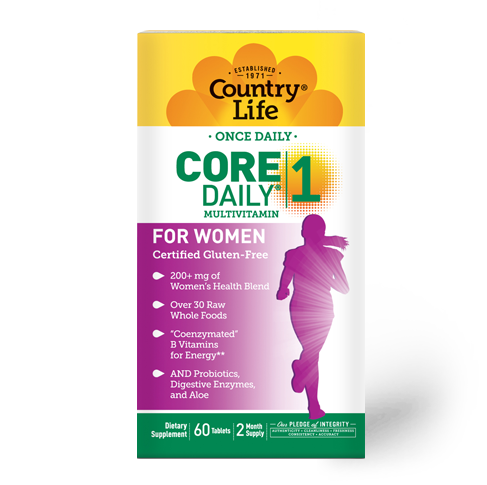
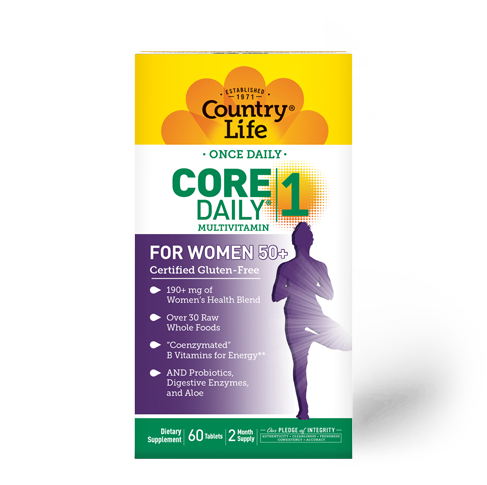
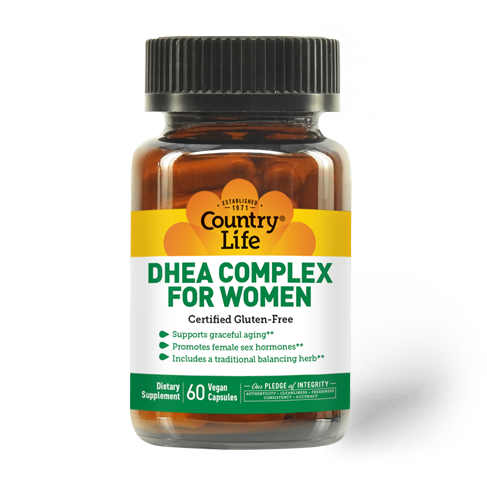
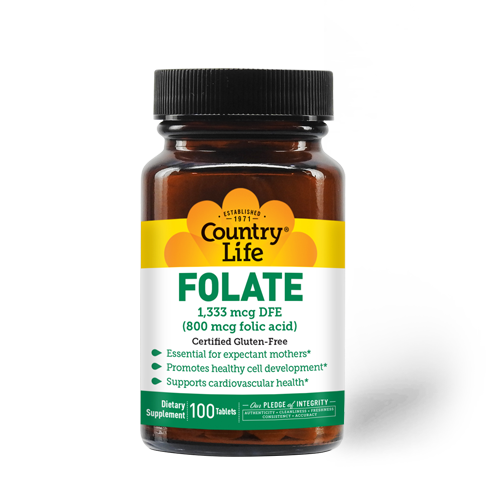
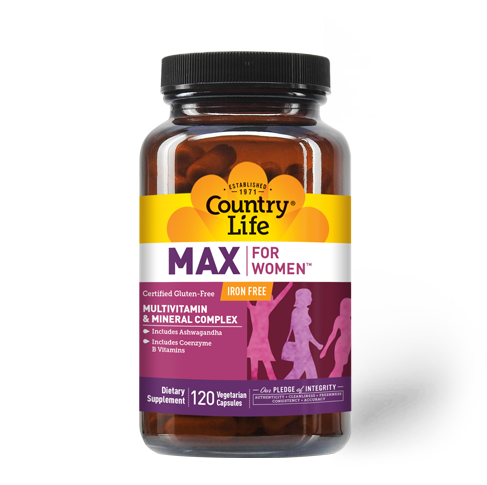
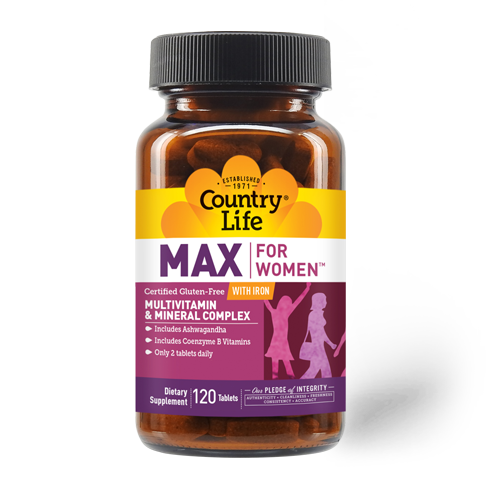
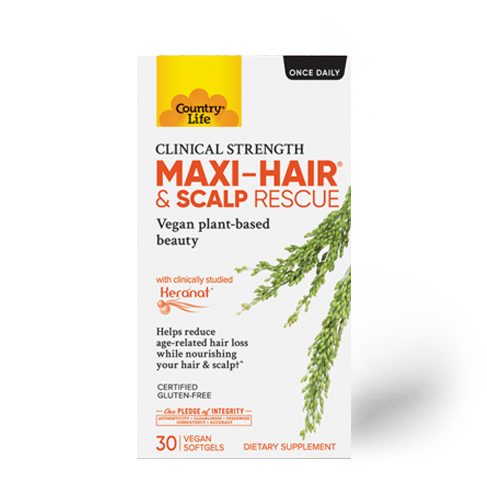
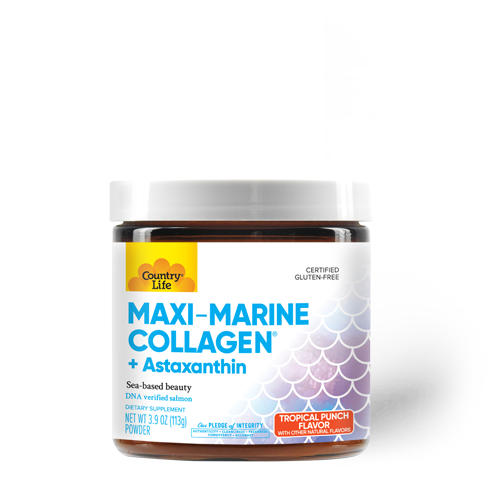










Share:
A Complete Guide To Vitamin K2: Benefits, Risks, and Uses
What Does Clean Eating Really Mean? How Supplements Can Help